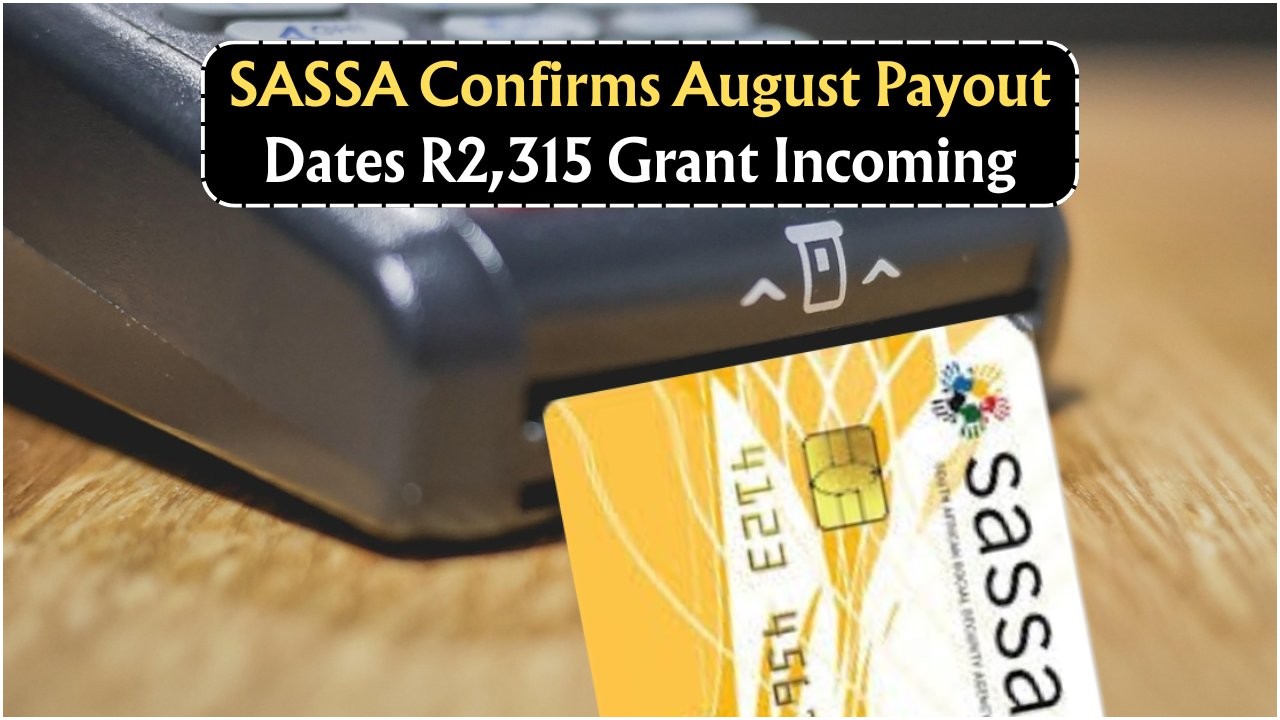NSFAS Virtual Wallets Transition: In an era where digitalization is transforming lives globally, South Africa is not left behind as the National Student Financial Aid Scheme (NSFAS) takes a monumental step forward. The organization is set to phase out physical cards in favor of virtual wallets, starting this August, with a full transition expected by 2026. This initiative is designed to streamline financial aid disbursement and enhance accessibility for students across the nation. By adopting virtual wallets, NSFAS aims to reduce administrative burdens, minimize fraud, and provide a more efficient and secure means for students to access their funds. This change is poised to affect thousands of students who rely on NSFAS for their educational financing needs, bringing with it both challenges and opportunities.
Understanding the Shift to Virtual Wallets
The shift from physical cards to virtual wallets marks a significant change in how NSFAS administers financial aid. The transition aims to align with global digital payment trends, offering students a modern and convenient solution. Virtual wallets will enable students to receive their allowances directly on their mobile devices, eliminating the need for physical cards and reducing the risk of card loss or theft. This digital transformation is expected to enhance the overall user experience, providing students with real-time access to their funds and the ability to manage their finances more effectively.
Advantages of Virtual Wallets
- Increased security and reduced risk of fraud.
- Instant access to funds on mobile devices.
- Elimination of physical card maintenance and replacement costs.
- Enhanced financial literacy through digital money management.
- Improved record-keeping and tracking of transactions.
- Greater convenience for students in remote areas.
- Support for a cashless society initiative in South Africa.
Challenges and Considerations for Students
While the introduction of virtual wallets is largely beneficial, it is not without its challenges. Students must adapt to new technology, which may be daunting for those less familiar with digital platforms. Access to reliable internet and smartphones is another potential barrier, particularly in rural areas where digital infrastructure may be lacking. NSFAS will need to work closely with educational institutions to ensure that students have the necessary resources and support to make the transition smoothly.
Steps to Facilitate the Transition
| Step | Description | Timeline | Responsible Party | Status |
|---|---|---|---|---|
| 1 | Launch awareness campaigns | Q3 2023 | NSFAS | Ongoing |
| 2 | Develop and distribute educational materials | Q4 2023 | Educational Institutions | Planned |
| 3 | Upgrade digital infrastructure | 2023-2024 | Government | Pending |
| 4 | Provide technical support | 2023-2026 | NSFAS/Tech Partners | In Progress |
Future Implications of the NSFAS Transition
The transition to virtual wallets is expected to have far-reaching implications for both students and the broader educational landscape in South Africa. By 2026, the complete adoption of digital financial aid disbursement could set a precedent for other sectors to follow, encouraging a nationwide shift towards digital transactions. This move aligns with the South African government’s broader goals of fostering technological advancement and economic inclusion.
Potential Long-term Benefits
- Increased financial inclusion for underserved communities.
- Promotion of digital literacy among students.
- Reduction in administrative costs for NSFAS.
- Improvement in financial transparency and accountability.
- Strengthening of South Africa’s digital economy.
- Encouragement of innovation in the fintech sector.
Comparisons with Global Trends
Globally, the trend towards digital payments is well underway, with many countries adopting similar solutions for financial aid disbursement. In comparison, South Africa’s transition to virtual wallets through NSFAS places it among progressive nations embracing technology to improve service delivery. Countries such as India and Kenya have successfully implemented mobile money solutions, significantly increasing financial access for their citizens. By following this path, South Africa aims to not only enhance the efficiency of its financial aid system but also contribute to the global conversation on digital financial inclusion.
Global Digital Payment Adoption Rates
 Cape Town on Edge: Government Declares Day Zero Emergency with Dams Dipping Under 35% in August
Cape Town on Edge: Government Declares Day Zero Emergency with Dams Dipping Under 35% in August
| Country | Adoption Rate (%) |
|---|---|
| India | 85 |
| Kenya | 78 |
| China | 92 |
| South Africa (projected) | 70 |
| Brazil | 65 |
| USA | 80 |
Ensuring a Smooth Transition for All
As South Africa embarks on this digital journey, it is imperative that no student is left behind. NSFAS, in collaboration with educational institutions and government entities, must prioritize inclusivity and accessibility. By providing comprehensive training and resources, they can ensure that every student is equipped to navigate the new system confidently. This includes:
- Conducting workshops and training sessions.
- Offering helpline support for technical assistance.
- Ensuring access to affordable data and devices.
- Partnering with telecom providers for special packages.
- Facilitating community outreach programs.
FAQ Section
What is NSFAS?
The National Student Financial Aid Scheme (NSFAS) is a South African government initiative providing financial aid to eligible students for higher education.
Why is NSFAS moving to virtual wallets?
NSFAS is transitioning to virtual wallets to enhance security, reduce fraud, and provide students with more convenient access to their funds.
Will all students be affected by this change?
Yes, all students currently receiving aid through NSFAS will transition to the virtual wallet system by 2026.
What are the benefits of using a virtual wallet?
Virtual wallets offer increased security, instant access to funds, and eliminate the need for physical card maintenance.
 SASSA Grant Alert: August 2025 Payment Dates Confirmed, R2,315 to Be Deposited Starting August 12
SASSA Grant Alert: August 2025 Payment Dates Confirmed, R2,315 to Be Deposited Starting August 12
How can students prepare for this transition?
Students can prepare by ensuring they have access to a smartphone and reliable internet, attending informational sessions, and familiarizing themselves with digital payment systems.







